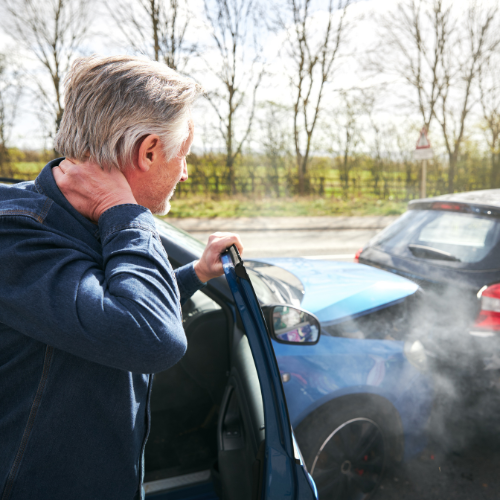Car accidents are stressful and potentially dangerous events that can cause physical injury and/or damage to vehicles. In most cases, determining who is liable or responsible for damages or injuries sustained in a car accident is complicated and can be difficult to navigate. When it comes to figuring out fault in an accident – meaning who caused the crash and should consequently be held responsible for related motor vehicle repairs, medical bills, legal costs (if applicable), etc – many people are likely unsure where to start. To help explain this process of fault determination, we’ll delve into different types of evidence commonly used by authorities when assessing these situations as well as discuss the circumstances that must usually be met for someone to receive compensation following an auto accident.
What is fault and how is it determined in a car accident?
Determining fault in car accidents can be a tricky process, but it’s important for both parties involved to establish responsibility for incurred damages. In most car accident cases; negotiations are made between the involved parties or their car insurance representatives. If a settlement cannot be reached, it may become necessary to hire an attorney and potentially take the dispute to court. State laws play a pivotal role in determining fault, as do additional pieces of evidence such as eyewitness accounts and physical proof from the scene of the accident. Ultimately, car accidents remain one of the primary sources of litigation involving injury or property damage. The importance of finding responsibility for the accident cannot be overstated; not only will it help ensure safety on roadways, but also allow victims recourse to timely and proper compensation.
Who determines fault – the police, insurance companies, or both parties involved in the accident?
Who ultimately determines fault in car accidents is a highly debated question without one definitive answer. Generally, the police make initial rulings as to who is at fault shortly after the car crash occurs, but they typically lack complete information which can lead to inaccurate conclusions. To ensure complete and accurate liability determinations, insurance companies often conduct more thorough investigations and have their own set of standards for assessing fault. Ultimately, car accident attorneys can be an invaluable asset when navigating the complexities of determining car accident liability. With their extensive knowledge and specialized insight, car accident attorneys are uniquely qualified to determine fault between both parties involved in a car accident and settle matters amicably.
How does one prove fault in a car accident and what are some factors that are considered?
Proving fault in car accidents can be a complex process, and it requires the help of competent attorneys. The way car accident attorneys do this is by bringing the facts to light with witness testimony and evidence such as photos, police reports, black box data from vehicles involved, and medical records. Other factors that can be key to understanding who is at fault include tickets or citations issued as a result of the car accident, property destruction costs, vehicle repair discussion logs, expert witness testimony such as an accident reconstructionist, review of applicable traffic laws and roadway conditions that existed at the time of the car accident. Keep these factors in mind if you find yourself in a car accident situation where fault needs to be assessed.
How do insurance companies determine fault?
Determining fault in insurance cases is an important process that can significantly impact the outcome of a claim. To assess fault, companies consider various factors, such as legal statutes, eyewitness accounts, police reports and investigations from experts. Insurance companies also use evidence-based algorithms to compare and analyze facts related to the claim to arrive at a reliable conclusion regarding fault. The goal is to determine who is most accountable based on negligence or otherwise wrongful action. The findings of the investigation must be unbiased and provide clear percentage of fault that can be used for claims resolution. Ultimately, insurance companies strive to accurately identify those at fault for losses or damages and assign liability appropriately.
What are some steps to take if you are involved in a car accident and would like to file a claim for damages?
In the unfortunate event you are involved in a car accident, there are a few steps which should be taken to help ensure the claim process runs smoothly.
- First, contact the police and file an official accident report.
- Afterward, make sure to take photos of any damage inflicted on your car as well as any other vehicles involved.
- Then seek medical attention if necessary and keep track of all related expenses.
- Finally, it is beneficial to speak with an experienced car accident attorney who can provide support and advice through the process of filing an insurance claim.
Our team of accident attorneys have years of experience helping clients navigate the complexities of car accidents. We will work tirelessly to ensure you receive just compensation for injuries or damages sustained during the incident.
Taking the steps outlined in this blog post can help you if you face a situation involving car accident and liability. Remember: always document all details of the accident – this will help to provide proof of fault and damage in case it needs to be used later. Furthermore, pay attention to your state’s laws regarding car accidents to make sure that you know your rights if faced with such an event.
If you are ever involved in a car accident, don’t hesitate to contact a qualified legal professional who can help sort out any legal matters surrounding the collision. At our firm, we will relentlessly and successfully pursue a favorable outcome for those injured because of another party’s negligence. We understand the pain and hassle that these injuries can cause and are dedicated proponents for claimants’ rights and interests. To get started on your case or for more information about what we do, call us today for a free, no obligation consultation with one of our attorneys.
